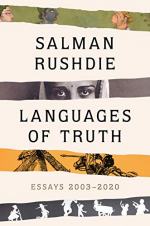|
This section contains 1,519 words (approx. 4 pages at 400 words per page) |

|
Summary
In Part Two, “Philip Roth,” when Philip Roth asked Rushdie “to deliver the Philip Roth Lecture,” he “accepted immediately” (85). Rushdie was also flattered to learn that Roth “had read and liked” his novel The Golden House (85). He reflects on the experience of meeting his literary hero.
Roth taught Rushdie much of what he now believes about literature. Roth’s writing particularly empowered Rushdie to break taboos (89). Doing so got Rushdie “into trouble,” particularly after publishing The Satanic Verses (89).
Roth also taught Rushdie the importance of humor. Without it, Roth’s book Portnoy’s Complaint, for example, “would be unbearable” (90).
Roth also embraced the malleability of language. His works straddle the two divergent definitions of the novel: the “loose baggy monster” and the “almost nothing novel” (92). His works also explore the nuances of “the...
|
This section contains 1,519 words (approx. 4 pages at 400 words per page) |

|




